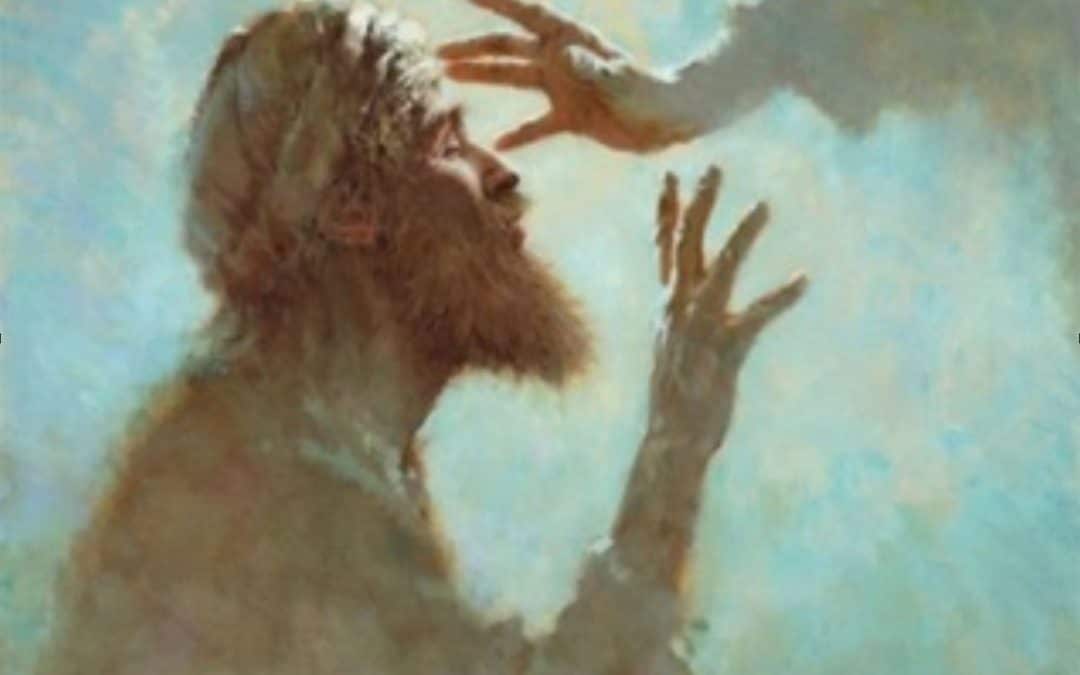Jesus and Social Distancing
He didn’t do masks, surgical gloves, or distancing.
Let’s start by stating the obvious: none of us is Jesus. But, those of us who follow his commandment to love others should adhere to all the guidelines that keep our families, neighbors, and ourselves safe during this coronavirus pandemic. Yet, that’s what makes this Holy Week so amazing. Jesus intentionally touched that which would ultimately kill him.
Social distancing was a way of life in First Century Israel. Nothing was more frightening than leprosy. It was considered highly contagious. Even breathing the same air as a leper was thought to be dangerous. These walking dead were forced to live outside towns in wilderness colonies, caves, tents, or garbage dumps. Lepers were required to wear distinctive clothes with bells sown into their robes to warn others that they were near. The laws demanded that they keep at least twelve steps distance, put a cloth across their mouths, and loudly repeat, “Unclean! Unclean!”
Coronavirus can bring death. Leprosy consigned its victims to a living death that inexorably ravaged their bodies, leaving behind stumps where fingers, hands, feet, or noses had once been. It’s no wonder that people kept more than a social distance from lepers. But Jesus got close enough to smell their foul breath, embrace bodies with oozing sores, and tenderly caress faces that were horrifically disfigured. He spoke words that healed lepers—not by standing at a social distance, but by touching them.
Social distancing involved more than contagious diseases. Religious folks refused to sit at table with tax collectors or prostitutes. Jews walked miles out of their way to avoid passing through a Samaritan village. The Orthodox fastidiously avoided entering a non-kosher home. Essenes lived in desert communes to avoid being contaminated by “worldly” city folk. The temple was divided into courts that kept Gentiles separated from Jews, women from men, and priests from laypeople. Passersby kept their distance from the blind, lame, paralytic, widow, orphan, or other beggars who cried out for alms. The teaching of that day said that these disabilities and diseases were proof that the afflicted were being punished by God for some sin. No one wanted to get too close to these folk, lest they be cursed too.
But God’s Son left a germ, disease, and sin free heaven, crossed the vast galaxies, and reduced himself to a two-celled zygote in the womb of a peasant girl. He was born in a dank, dark, unsanitary cave, amidst barnyard smells and animals. He grew up in poverty, lived among the dirty and uneducated, chose misfits as his disciples, hobnobbed with notorious sinners, embraced the rejects of society, and suffered every tribulation known to man. He never kept a social distance from anyone.
After he was betrayed, rejected, abandoned and abused, he was nailed to a cross. He took all of the sins, sorrows, and diseases of God’s children upon himself. St. Paul said in 2 Corinthians 2:5, “…he who knew no sin became sin for us…” He literally became sin itself. He also became leprosy, coronavirus, and every other disease we have ever experienced as a result of sin in this world. He endured an eternity of hell for all those who call on his name for salvation. All this happened during that Holy Week.
So, the next time you step back from someone in order to keep your social distance during this pandemic, rejoice that Jesus didn’t step back from you. And, not keeping that distance killed him. The story ends well at Easter when he rose from the dead. But today, you might want to praise him for not staying safely in his heavenly home, but for coming near us—without mask, surgical gloves, or social distance—so that we might one day be with him in heaven! If you want your kids, grandkids, and other loved ones to join you in heaven, this season of coronavirus might be a good time to share this metaphor of “Jesus and social distancing” with them.
From My Heart to Yours,
Dr. Bob Petterson
Legacy Imperative

